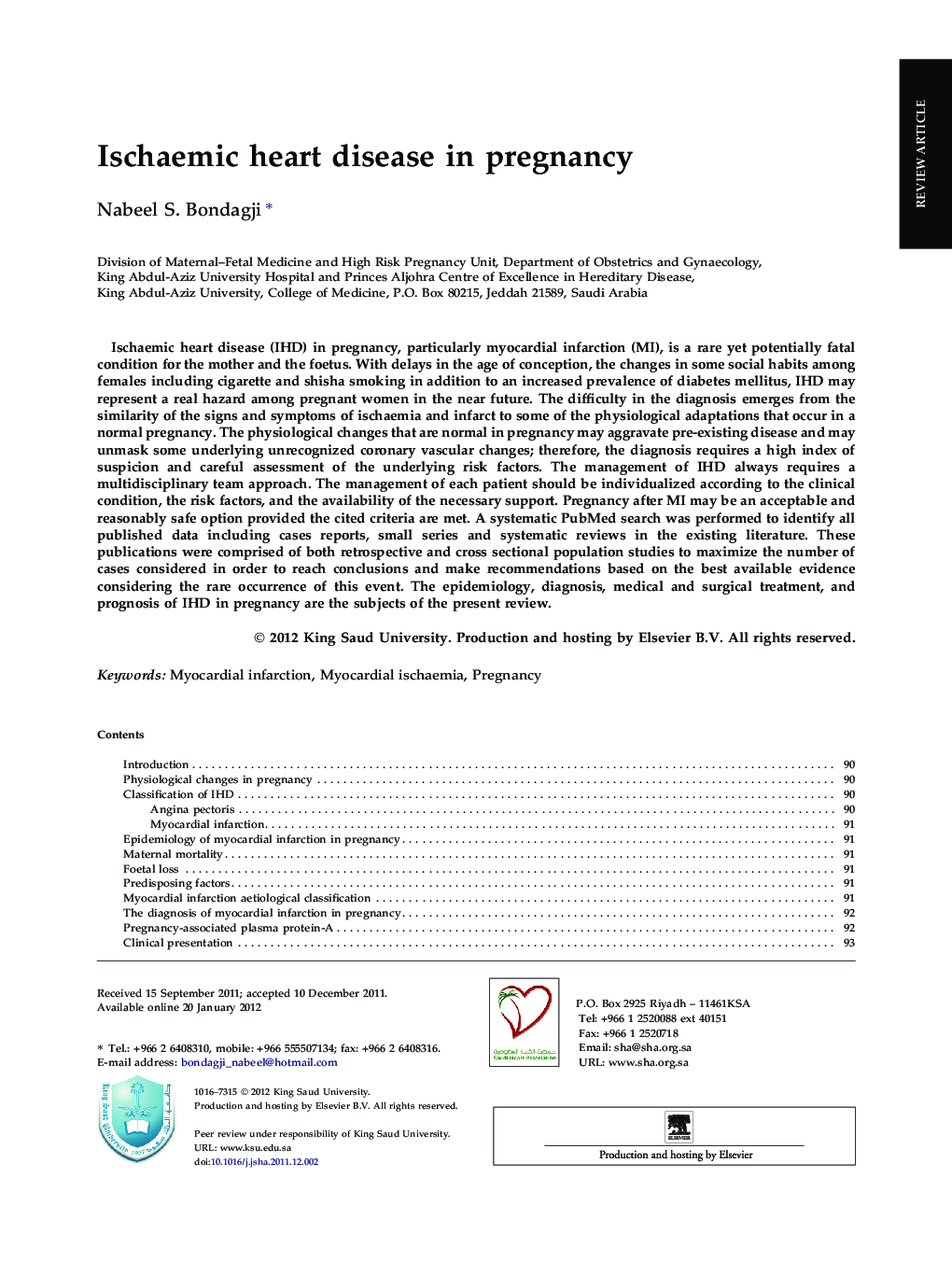| Article ID | Journal | Published Year | Pages | File Type |
|---|---|---|---|---|
| 2978432 | Journal of the Saudi Heart Association | 2012 | 9 Pages |
Ischaemic heart disease (IHD) in pregnancy, particularly myocardial infarction (MI), is a rare yet potentially fatal condition for the mother and the foetus. With delays in the age of conception, the changes in some social habits among females including cigarette and shisha smoking in addition to an increased prevalence of diabetes mellitus, IHD may represent a real hazard among pregnant women in the near future. The difficulty in the diagnosis emerges from the similarity of the signs and symptoms of ischaemia and infarct to some of the physiological adaptations that occur in a normal pregnancy. The physiological changes that are normal in pregnancy may aggravate pre-existing disease and may unmask some underlying unrecognized coronary vascular changes; therefore, the diagnosis requires a high index of suspicion and careful assessment of the underlying risk factors. The management of IHD always requires a multidisciplinary team approach. The management of each patient should be individualized according to the clinical condition, the risk factors, and the availability of the necessary support. Pregnancy after MI may be an acceptable and reasonably safe option provided the cited criteria are met. A systematic PubMed search was performed to identify all published data including cases reports, small series and systematic reviews in the existing literature. These publications were comprised of both retrospective and cross sectional population studies to maximize the number of cases considered in order to reach conclusions and make recommendations based on the best available evidence considering the rare occurrence of this event. The epidemiology, diagnosis, medical and surgical treatment, and prognosis of IHD in pregnancy are the subjects of the present review.
